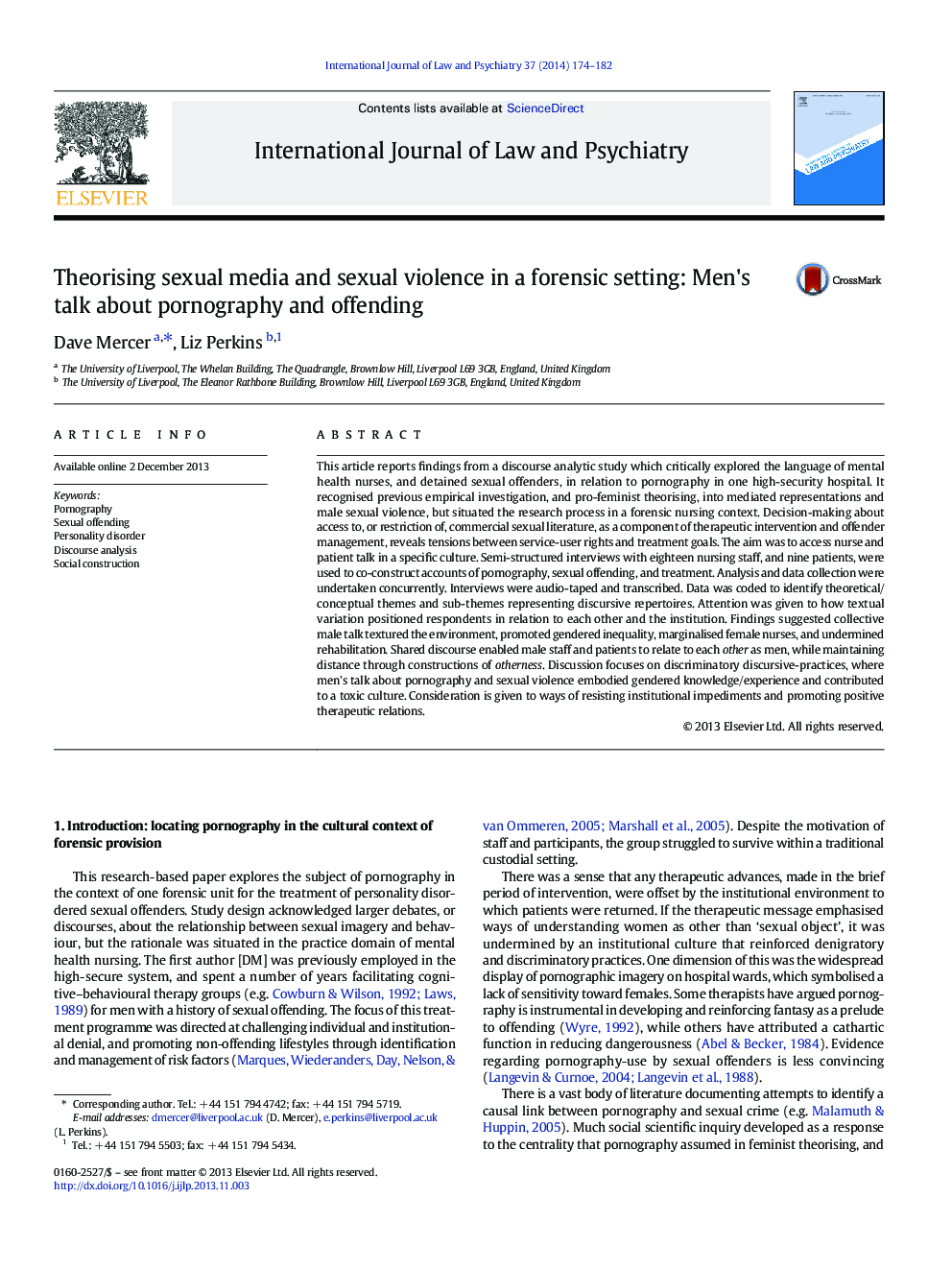| Article ID | Journal | Published Year | Pages | File Type |
|---|---|---|---|---|
| 6554704 | International Journal of Law and Psychiatry | 2014 | 9 Pages |
Abstract
This article reports findings from a discourse analytic study which critically explored the language of mental health nurses, and detained sexual offenders, in relation to pornography in one high-security hospital. It recognised previous empirical investigation, and pro-feminist theorising, into mediated representations and male sexual violence, but situated the research process in a forensic nursing context. Decision-making about access to, or restriction of, commercial sexual literature, as a component of therapeutic intervention and offender management, reveals tensions between service-user rights and treatment goals. The aim was to access nurse and patient talk in a specific culture. Semi-structured interviews with eighteen nursing staff, and nine patients, were used to co-construct accounts of pornography, sexual offending, and treatment. Analysis and data collection were undertaken concurrently. Interviews were audio-taped and transcribed. Data was coded to identify theoretical/conceptual themes and sub-themes representing discursive repertoires. Attention was given to how textual variation positioned respondents in relation to each other and the institution. Findings suggested collective male talk textured the environment, promoted gendered inequality, marginalised female nurses, and undermined rehabilitation. Shared discourse enabled male staff and patients to relate to each other as men, while maintaining distance through constructions of otherness. Discussion focuses on discriminatory discursive-practices, where men's talk about pornography and sexual violence embodied gendered knowledge/experience and contributed to a toxic culture. Consideration is given to ways of resisting institutional impediments and promoting positive therapeutic relations.
Related Topics
Health Sciences
Medicine and Dentistry
Forensic Medicine
Authors
Dave Mercer, Liz Perkins,
